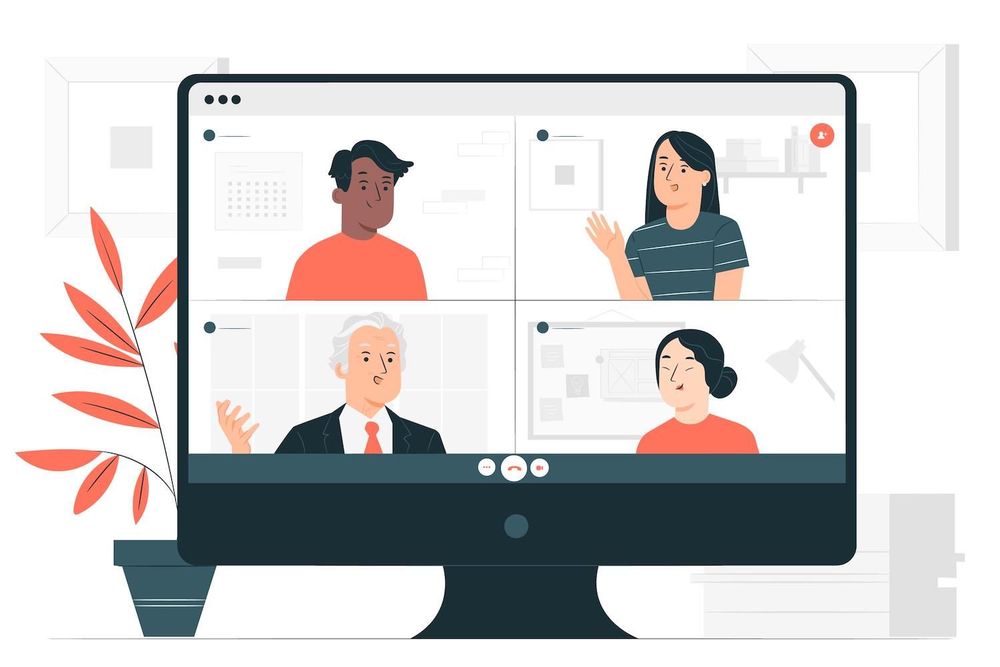Terms

"I was raised and born within Southern Vermont," starts Max Mackson of Maximilian Mackson, LLC. I was a homeschooler until high school. It gave me the chance to use the computer. I learned HTML, CSS, and JavaScript that are the languages of the web, and after that, I continued to explore other projects."
When he was a teenager, Max entered a play program. "I was taught to be a professional. The direction we received was from an extremely strict supervisor, something I'm happy to have done since he taught me how to stay on time and make sure you're ready," he adds. Max's initial IT work experience came at this point. "Between my sophomore and junior years in high school I had a job at a local club that was located in the town. I worked there two times each week to make changes to their website, and it was God terrible! They were using a bizarre third-party software that took around half an hour to do tasks that with WordPress could have been completed in only two minutes." He explains.
The ability to meet people face-to–face while solving the technical issues certainly made a difference, he continues. "I'm focussed on my personal connections. I am able to get lots of worth from my relationships. In the summer at the country club all was on high constantly. When the printer in the kitchen stopped working it was my responsibility to move around the area. The kitchen was very hot and bustling and the whole family was buzzing around me . We had been "in the zone' at the time!"
Max was thrilled to see firsthand the results from his work, in attempting to resolve our stressful relationships that people have with technology at times. "When I was working with other people with whom I worked, I would tell them that I had just pushed an update to this machine.' I would then ask them to see if the update could be beneficial to them or in the event that they were in confusion. I'd be able to observe different viewpoints and find out how people's responses to technological advances are. Many IT people will say, "Oh, this is what we have today; here's an update' which frustrates me. I am a fan of working with the people."
Max discovered that having a thorough understanding in tech could help improve people's lives. In the days of country clubs the reason for his dislike of printers beganto surface "They don't seem to perform well when you're in need of they to!" He smiles. Much part of the time was spent on repairs to printers; working with hardware assisted him in understanding the structure of systems "I found myself re-working every one of their systems over the decades. I will continue the work they do now," he adds.
Singing with him
As for formal academic knowledge, Max went to Champlain College located in northern Vermont however, he received an entirely different way than traditional education curriculum. "I was one of twelve information technology majors and it's hilarious when you consider that while I was at school, it was decided by my college that they wanted to close the major! We were taken to an area and said"Hey! You fellows! So, you'll be able to graduate. However, we won't provide the degree following this year'!"
Max started working in the field of audio-visual production due to his background in theater. "That required more fixing of technology since all classes relied on an electronic computer, projector , and projection screen" Max says. "When problems occurred and we had to walk into the classrooms that were full of people and everyone would stare at us. After that, we'd sit at a table and switch out the bulb in a projector!"
"I was in college just two years. I dropped out because I was feeling it was extremely slow. The world of the internet changes so rapidly, that after you've completed your studies on something in college the subject is outdated on the market. Professors need to research and explain that out to the students, it can take an extended period of time" Max adds.
Naturally, the rate of innovation hasn't slowed and in fact, has increased and the speed and purpose of the higher education system eventually led Max being able to establish the business that he runs. The reason he quit was because his outlook for the prospects was not quite as evident as the one at his school: "They liked to say that 99 percent of their students working straight out of college, that's fantastic. However, they go hardcore on making sure that everybody is in their fair share of the workplace. I enjoy working with people, but not as a result from that. It was not appealing to me."
After that, Max went out by himself and started looking for the first person to be his client. Max had recently attended an online training course, and the person who was organizing the course had asked for reviews. Max recalls: "I sent one in, just thinking I'd practice my writing abilities. At the end, I wrote, 'PS If your abilities could ever be of use to you, contact me'. He replied: 'Well then, what are you working on?"
Max looked over the website and wrote a bulleted list of improvements: "No BS, just short and simple" and Max was able to get a prompt response: "Text me' along with a phone number. "That was how I got the job I wanted. Today, he's the perfect client!" Max smiles.
Projects and services
"You have all the different pieces of software that power your business, yet none of it's talking to one another. I'm the guy who gets the software working seamlessly," Max says. Max claims this results in a more robust system, that could be utilized to speed up expansion of business as well as save both energy and time. "I consider myself to be an integrator of systems and systems architects. Some people my parents call me the IT guy!" he jokes.
Max Explains that the typical tech stack for a user could consist of 100 pieces of software in separate pieces. "You must connect the components together so they can communicate with each other. I started working with small group of clients on web design. I then began with integration work April 20 in 2021. One of my clients wanted to establish a member-paying exclusively community."
Max worked with that client, a health influencer and evangelist for the past few months, and was having a great time. Max was not familiar with membership but it was clear for him what the issue was going to be. "I am in the process of researching a bunch of software for membership. I've got a method of research where I take a look at different lists of the most successful software. I'll then compare the results."
Max chooses the program that provides the best comfortable experience for users from both the admin and a user's perspective, so that support for customers is shorter in the longer term. The ease of use is crucial. "I can operate in a more intricate environment but I also understand the process when something has reached in a state that it's not useful to everyday users. Customers want to buy some thing and would like to get it. It's normal: when you sign in to the website, I'd be aware of the expression at the face of their. I'd start explaining it but their eyes would stare!"
Integration strategies as well as the future
"Integrations could appear complicated," Max muses. "They have different types as well as different degrees. For a native integration such as Mailchimp you just need to click a couple of buttons and the integration is authorized and then you're done. Low-code or no-code integrations, such as Zapier's Zaps, and completely custom ground-up solutions where you write all of the details from beginning to end."
"Generally, I play within the non-to low-code area since it can work for my clients. However, for one specific integration, my client was looking to go very in depth with the integration. They wanted to incorporate all the capabilities of native integration, but they managed to do it via Zapier. I had to use a dozen different Zaps to get this thing wired up and to make it feel like native and I had to include some code that was custom."
The thing that made this particular venture exciting was the amount of interaction. "The the first day the project was launched, we put 50,000 tasks through it. This is astounding! I needed to improve it in order to make it more sensible. The final version was able to be reduced to below 5000 jobs daily, that was quite high."
The author states: "That was the first time I had worked on a project of that size that had Zapier. I've had the privilege of working on lots of different projects, some that focussed on aesthetics and others that were more technical. However, this particular one was particularly memorable."
The larger dimension of development is the driving force behind Max's career path. Max states: "Longer term, I plan to create software designed specifically to help business." Max says that his opinions on software are often because it's one of the main components in his work and since so the software has changed through time. "It becomes bloated and slow it's no longer user-friendly. It's constantly releasing UI upgrades that only make it more difficult. In the present there are a lot of customers who want software to fail!"
He claims he's working hard to create a simpler, user-friendly experience for users. "It's still in its design stage but I've got some thoughts. It's probably six months away, because I'm usually a solo worker most times. I don't like working with an agency. They hand an idea to unidentified developers, whom are kept locked in an unlocked closet! I'm not a fan of that kind of environment and prefer working with people only one-on-one."
Max is a regular contributor to his blog. He shares his most recent thoughts and offers preferential treatment to subscribers of his email list (which he lovingly refers to as the "#MilianFam"). In addition, as an exclusive benefit to subscribers newly added to his mailing list, Max has developed an exclusive bonus program as of at the moment of posting, has not before offered this in any other place, at whatever price.
This post was posted on here
